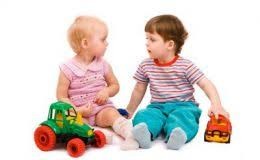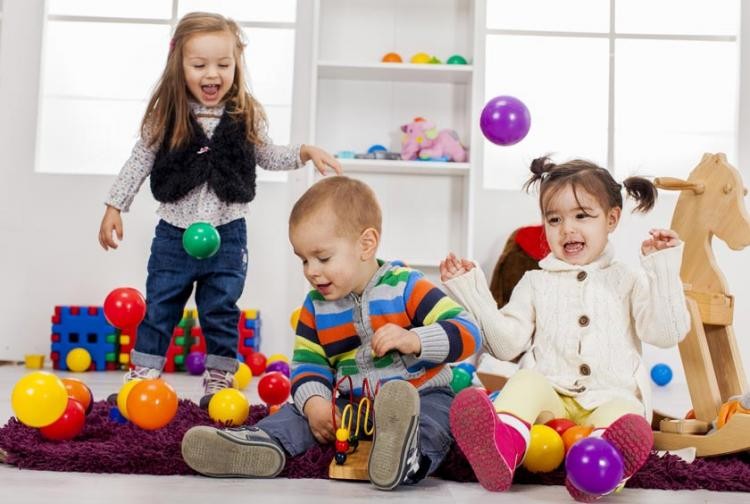Need to share the baby!
If another child wants to take from your toy, and he resists:
- talk to the child who has approached, try to switch his attention to something neutral ("oh, what a beautiful dress you have ...");
- offer to change toys or give another, not such an "expensive heart" toy (you need to take a few of these toys with you);
- involve the children in joint activities: "Look, what tower of stones I build, give me pebbles, together we will get a big beautiful tower ..."
When an awkward situation is overcome, your baby did not make a fit, or even agreed to let the toy be held, be sure to note its correct behavior, say that it was nice to see how he shares with others (asks permission to take someone else's toy). Do not forget to praise your child for his kindness and generosity.
At home read fairy tales, stories, stories about how badly to be greedy and how well to share.
If the conflict has already occurred:
- do not shout at the child, do not spank, in an excited state the baby does not accept the explanation, so first, the children need to be diluted and reassured;
- calmly say that it's time to go home (to the store, etc.), then take your child with his treasures and slowly leave the "battlefield" after the baby has calmed down, you can discuss the situation, it will also be appropriate a fairy tale or a story on the topic;
- if children are fighting or crying, you need to show patience and wisdom, dissolve in different directions, you can try to distract a hidden and suddenly appeared toy.
Do not take expensive toys on the street, the loss or breakdown of which will upset you and the child. Also, do not take your favorite and new toys - only "enjoying the property" the kid will be able to share it with others.

How to teach a child to share?
Kind and generous can be a person who has a sense of ownership. He gives not because it is so necessary, but because he wants to bring joy and to rejoice together in others. You can make a child so that he will give because he should, but in this case, he will feel dissatisfaction, a contradiction between emotions and action.
Very important example of close people - mother, father, grandmother, older sister. If the family is made to give gifts to friends, to help relatives, provide gratuitous services (help to an old grandmother-neighbor), charity (even as small as a charity in the street) - the child will be sure that such behavior is not a feat, but a "normal business".
Talk with the child that he can give away toys, things, give to a neighbor child, a poor family, etc. Ask why he chose this particular thing. If you see that the baby is really not sorry to part with the toy, he does not doubt his choice, the time of giving comes. It is important that the person to whom the thing was given is sincerely grateful, said kind words to the donor (if it is a child, adults should help).
Already at 2 years old, the kid can make gifts close to the hands. Here are a few positive moments: the child creates, tries to make a gift to a specific person, he enjoys the fact that others highly appreciated his efforts, it is easier for him to part with his work. You can make a picture, bookmark a book, a postcard, etc. (of course, while with the active help of an adult).
Involve the child in the choice of gifts and the delivery process. It is important that the gift is not for your child what he really wants to have. Let the child participate in the congratulation, hear the words of gratitude from the recipient.
It is desirable that the child had a wide range of contacts, the house was often visited by guests, he himself went to visit.
Beat different life situations: birthday bears (visitors come with gifts, he meets, treats, entertains), etc.

